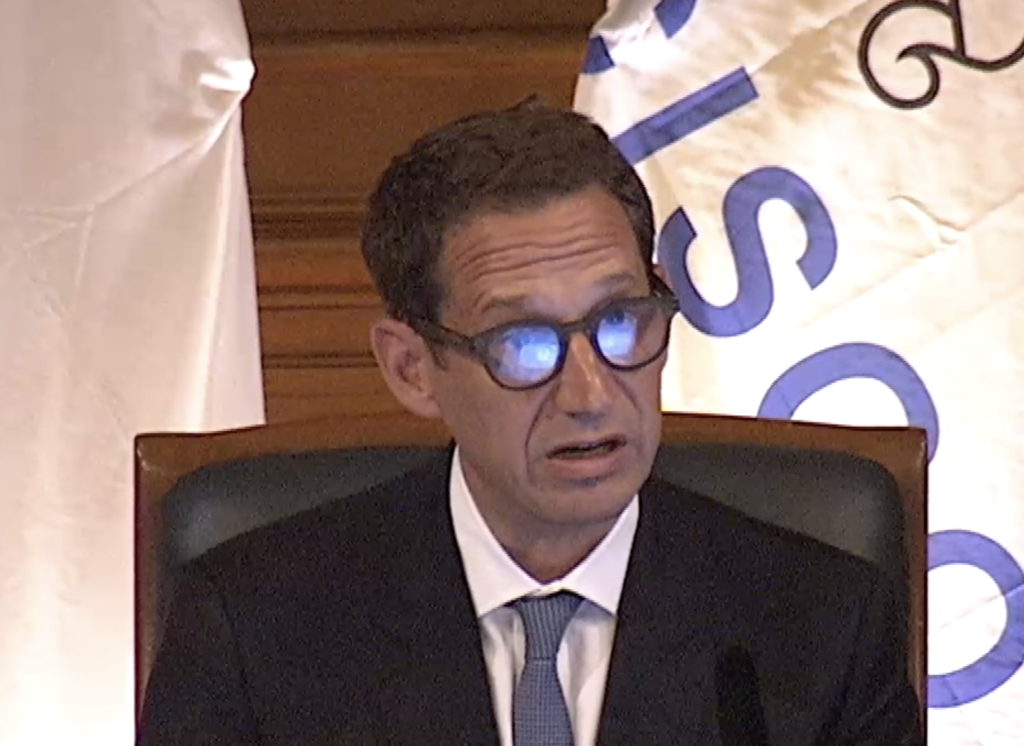None of the supervisors submitted a question for Mayor Daniel Lurie Tuesday/8, the day his budget, with massive cuts in social services, comes up for its first vote. So Lurie will get to make a statement on his own, and no doubt do what he’s been doing for months: He will say his budget was about “tough choices” that are needed to “right size” the city—as if San Francisco was a corporation laying off workers and closing plants to protect the bottom line.
Then the 11 supes will have a chance to discuss the plan that the Budget and Appropriations Committee approved after huge protests and hours of public comment, almost all of it negative.

I’ve seen plenty of times over the years when members of the state Legislature have voted against the governor’s budget, particularly when the governor was a Republican and Democrats controlled the Assembly and Senate. But only rarely do any members of the Board of Supes vote against the final deal worked out by the mayor and the budget committee.
Former Sup. Dean Preston voted (alone) against Mayor London Breed’s budget, and this time around, members are going to under pressure on numerous fronts. Among the biggest: The mayor wants to shift a big chunk (although not all) of money that by voter initiative is supposed to go for new affordable housing into short-term shelter.
San Francisco voters made their vision clear in 2018: a future where our homeless neighbors are supported by permanent solutions rooted in compassion and evidence. Proposition C, Our City Our Home, was a historic citizen-led initiative that passed with overwhelming support despite millions spent against it. The measure created a dedicated revenue stream to house people — not just shuffle them from shelter to the streets, and back to shelter. I was proud to lead the District 5 effort to pass this measure which has been one of the most important citizen initiatives in San Francisco history. It has already brought in over a billion dollars by taxing the richest corporations, without which we would have seen homelessness catastrophically explode in San Francisco.
One of the key aspects of Prop C is that it invests not just in eviction prevention and shelters, but in permanent supportive housing for families, youth, and adults. In fact, under the measure, 50% goes to affordable housing. It is crucial to provide long-term exits for homeless people, not just to get off the streets temporarily, but to stay off the streets forever.
It’s particularly frustrating for many of the activists who worked on the Prop. C campaign. Back then, affordable housing advocates constantly ran into a wall: Mayors, including the late Ed Lee and Breed, would say there just isn’t enough money to pay for all the non-market housing the city needed.
“After all the years of them telling us that it was too expensive to build housing and giving us the ‘everybody wants stuff for free’ bullshit, we went and passed the tax ourselves without their help so that the city didn’t have to fund it,” said Jen Snyder, a former aide to Preston, who was a big Prop. C advocate. “And now they are stealing it.”
Lurie wants to divert money to short-term shelters to get the unhoused off the streets—and out of public view—although the overwhelming consensus among housing providers is that shelter is not an effective long-term solution.
Sup. Jackie Fielder asked if that part of the mayor’s budget was even legal: Under Prop. C, eight of the 11 supes have to approve any changes in the way the money is spent, and only six need to approve the budget. “It’s bad when we are negotiating away good governance,” Fielder told me.
Sup. Shamann Walton, who is on the Budget and Appropriations Committee, voted against it.
If there is dissent on the full budget, it may once against come down to the 9-2 majority that has been supporting Lurie’s agenda.
San Francisco Democratic Socialists of America, the Coalition on Homelessness, and other advocates will hold a rally and press conference on the steps of City Hall at noon.
The Budget and Finance Committee will vote Wednesday/9 on a plan that would essentially outlaw recreational vehicles in the city, creating more misery and street homelessness as people literally lose their homes to towing and impoundment.
A more progressive Board of Supes in 2024 rejected the same idea when Breed promoted it. Among those who voted No was Sup. Myrna Melgar, who since then worked to clear RVs out of a residential area in her district.
Melgar is now a co-sponsor, along with Sups. Rafael Mandelman, Joel Engardio, Matt Dorsey, and Stephen Sherrill. That hearing starts at 10am.
The Police Commission will discuss Wednesday/9 a plan to hire an executive recruitment firm to do a national search for a new police chief. That’s nothing unusual: The same firm did the search that brought Chief Bill Scott to the city from Los Angeles (where he is now returning to build a new transit police force).
Under the City Charter, the commission choses three final candidates and forwards them to the mayor.
What’s unusual is that the Planning Commission did no such thing when Rich Hillis retired as director. Instead, the panel, in what some members say is a violation of law, short-circuited the entire process to put a Lurie ally in one of the most important and powerful jobs in the city.
Lurie went out of his way to fire one the city’s best police commissioners, Max Carter-Oberstone, in part so he would have control over the hiring of the next chief. Let’s see how this process actually plays out.
Remember: Lurie comes from the world of big corporate nonprofits, where executives hire and fire whoever they want and where words like “right sizing” are common. He’s now the mayor of a city, where things are supposed to be a bit different.





